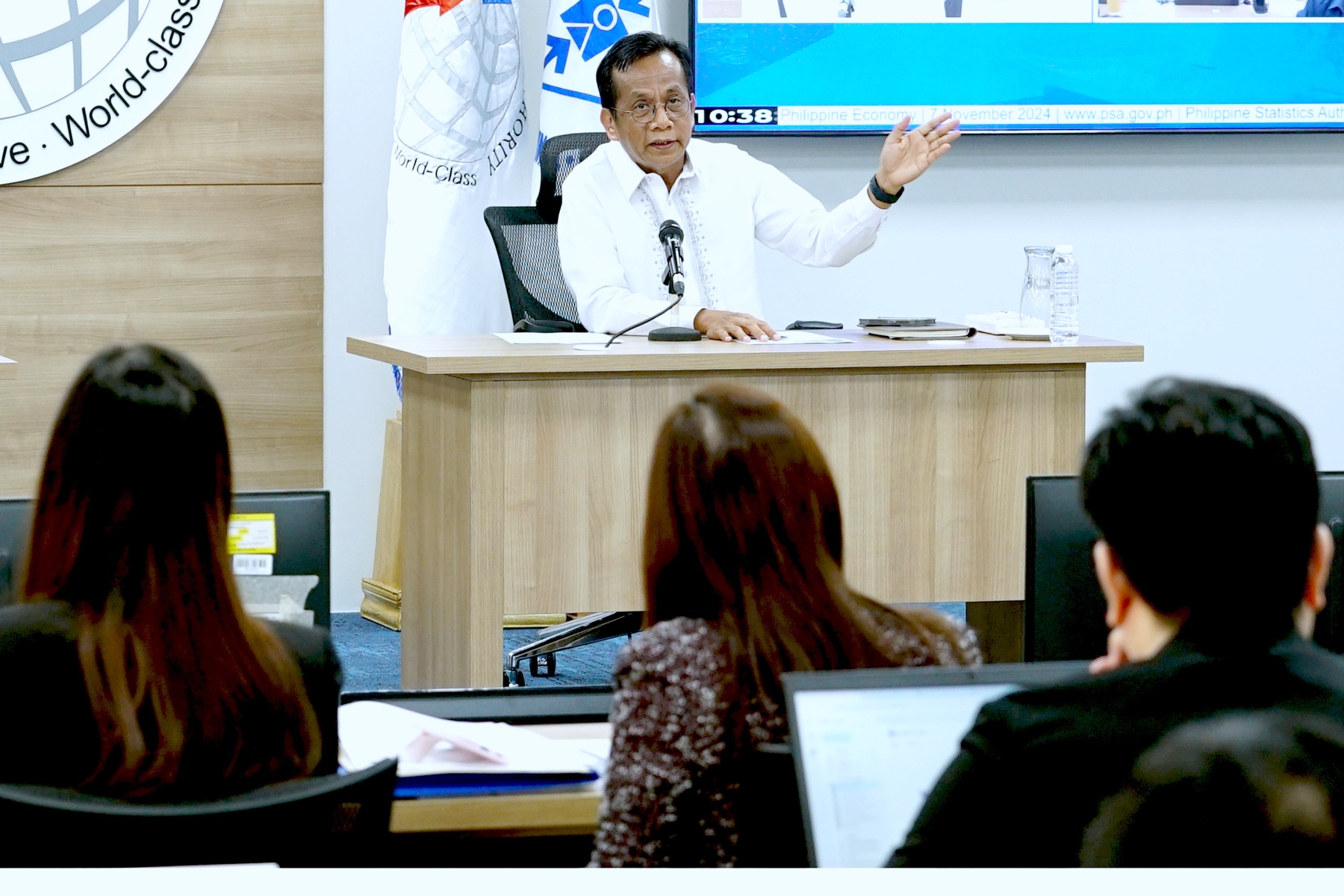
By Dean Aubrey Caratiquet
In a speech at the 62nd Philippine Economic Society (PES) Conference on Friday (Nov. 8), National Economic and Development Authority (NEDA) Secretary. Arsenio M. Balisacan emphasized the importance of policies that enable the transition of Filipinos into the middle class while cushioning them from economic shocks.
The NEDA-sponsored plenary session, themed “Growing and Strengthening the Middle Class towards Realizing the AmBisyon Natin 2040,” highlighted the critical role of a robust middle class in realizing the Philippines’ long-term vision of a prosperous, predominantly middle-class society by 2040 or the “AmBisyon Natin 2040.”
“Our first and important step is to address the poverty in the country. Once individuals rise above poverty, we must focus on mitigating their vulnerabilities to risks by enhancing the resiliency of our jobs and other income opportunities to prevent them from falling back into poverty,” Balisacan said.
NEDA Undersecretary for Policy and Planning Group Rosemarie G. Edillon gave the plenary presentation, emphasizing the holistic set of priorities that the government must focus on.
“To sustain a middle-class living standard, Filipinos need adequate income and substantial savings. The government must continue to implement policies that reduce poverty, keep commodity prices low and stable, increase employment opportunities, and improve the employability of Filipinos, as well as build resilience by strengthening social protection,” Edillon said.
Additionally, according to World Bank Lead Economist Gonzalo Varela, reducing trade and investment costs is essential to outward-oriented growth.
“Along with the need to create more opportunities, the Philippines needs to create capabilities by establishing strong human capital and equipping workers with the skills of the future, integrating approaches to fix foundational challenges, and preparing for technological disruptions,” Varela said.
The plenary session, organized by NEDA, explored the socioeconomic factors contributing to middle-class growth, including education, job creation, social safety nets, and equitable income distribution. The discussions also covered policy measures, financial inclusion strategies, and innovative approaches to support and expand the middle class as a driver of sustainable economic growth and development.
-av
